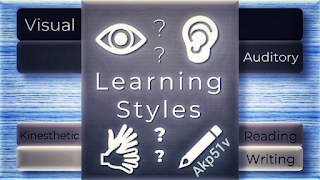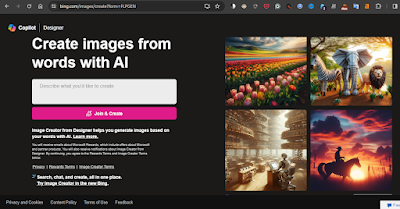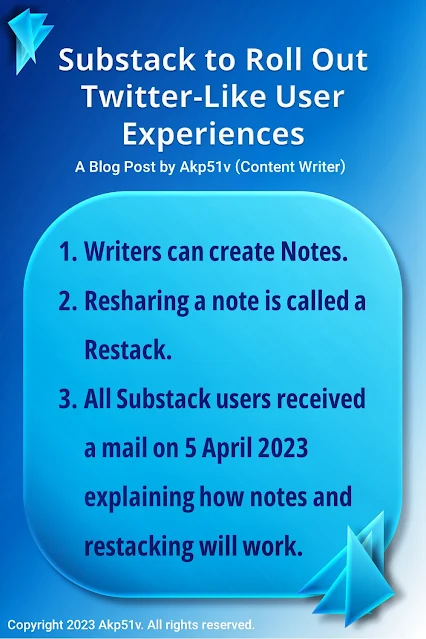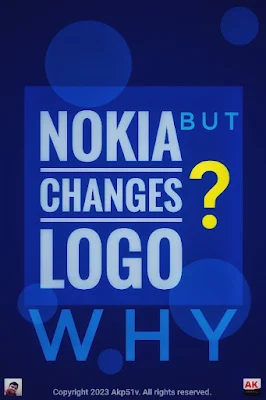The Four Learning Styles with Use Cases | SMD Akp51v
Acquiring new skills through on-the-job training and academic resources can give you joy or frustrate you based on time, effort, and external factors. One way of ensuring you can retain information and successfully apply it to solve problems is to consider your learning style and personality type because doing so will help you plan for realistic skill-building. In other words, finding learning resources and methods compatible with your unique needs accelerates your growth as a lifelong learner.
As we live in this age of fast changes, you need to adapt to them with the least cost. So, this post shall host a few interesting ideas in the world of knowledge transfer.
 |
| Akp51v's article image design. Featuring the learning style categories. |
Types of Learning Styles - The Top Four
Now, you can try the four major categories of learning methods. Then, you could select only one style that is most effective for you. But doing so might help you with a specific set of subjects or skills. Here, you get a short but precise discussion for each learning style.
And you will learn about the case-specific suitability of these methods in the latter sections. Anyway, let's begin with your eyes.
1 | Visual Learners - Your Sight is Your Guide
Do you love graphs, diagrams, or sketches? Yes, if your notes are full of arrows or Venn diagrams, you are more of a visual learner. As you can guess, your main psychological learning tools use colours, shapes, patterns, and design elements.
Perhaps, you love to visualise your data as a rough line or a polished map. Note that your compatibility with the video resources or the animated tutorials might be a different story.
Why? Because some individuals who love this visual learning style prefer simple drawings. And the videos, photos or animations can distract them more.
Also, you might like a person teaching a concept in a prerecorded video. Or, a slideshow with an audio narration is your favourite educational resource. But in these situations, you are absorbing the information and its "meanings" via your eyes and your ears.
2 | Auditory Learning Approach - Knowledge as Music
We love stories. And you need to listen to others if reading or writing is not enough for you. It could be your friends, siblings, or elders. But you must talk. Then, you ought to listen. So, if you find it awesome to learn through the audio content, this style is compatible with you.
Indeed, public speaking is one of the top skills of all time. Because society has a lot of audio-loving learners. And you probably know about music therapy as well as the growing podcast culture.
Be it the educational ideas or general knowledge discussions, your ears are going to help you a lot. Also, you are a visual and auditory learner if you love video courses.
Still, you can take these learning styles to another level. How so? By learning through your actions.
3 | Kinesthetic learning style - Learning via Physical Interaction
In a lab, you use the equipment to try experiments. And the instructions are not enough for you. Thus, you must ride your bike first. Or, practice with your dance steps before worrying about the synchronization.
In short, touch, body movement, and hand-eye coordination are your favourite learning tools. This is what makes you a kinesthetic learner.
Of course, modern-day schooling and many misattributed wisdom quotes focus on this approach. Because even if you prefer other learning styles, a kinesthetic or activity model is always helpful to everyone.
Still, you cannot use the above three learning styles each time. And you might need solitude or using your own language when you are learning something new.
4 | Reading-Writing Learners - The Ultimate Skill of Human Life
Unlike other styles of learning, reading and writing force you to use your bodily senses and imagination. Besides, those books help you spread new ideas and concepts to a large population in the fastest way possible.
Then, you write about those concepts using your own words. Or, some standard formulation might need your daily handwritten practice.
With your pen, pencil, and paper, you can learn anything as long as you have an interest and patience.
Related: Writing Heals You
Above all else, you do not need any expensive equipment or face-to-face interaction. In fact, you do not need a lot of bandwidth either. Even a simple text file of a few kilobytes might tell you something great and profound.
But as with every other aspect of life, you cannot depend on one learning style for all subjects, skills, or topics.
Learning Style Suitability Insights
Now, you have arrived at the final section of this article project. We must explore some cases first. And soon, you can create your conclusions after thinking about the situations below.
Case 1. When the activity or kinesthetic learning style is vital
Let's say you want to remember a chemical equation. And you might succeed with a visual approach. Or, you can create a shortcut to recall all the element symbols. But remembering that equation does not mean you understand how each reactant is working.
If your goal is to remember a lot of information, then you can stop after a learning style helps you achieve it. Still, you will have a good conceptual understanding of what is going on in this reaction.
More importantly, you should internalise why the chemical reaction is taking place.
Now, you must study the concepts about electron valency, chemical bonds and energy. Then, you need to notice any special requirements for a certain reaction. Finally, you should try that chemical reaction in a safe lab environment.
Only if you get the products promised in the theoretical equation can you trust chemistry.
Case 2. How the visual learning helpful for fast decision-making
Assume that you have a hundred observation readings for an experiment. Or, you might look at your annual income in the 12-month or 4-quarter model. Now, you want to know the nature of your revenue growth or decline.
So, you could spend a lot of time comparing all rows with each other. Else, you can save all that effort by plotting the data on a graph.
If you are a tour guide or a new cab driver, maps are more important than banners. For graphic designers, the feel is as important as the geometric precision. And some of your coworkers and co-learners might carry three different colours of pens or markers.
Because digesting the information about changes via colour-coding and clear lines is easier. As a result, you can make a good decision without the item-by-item comparison.
Case 3. Audio-based learning for music, meetings, and exam preparation
Try to think about this scenario. You are on a phone call. In a quick sequence, your contact gives you many details. Here, both of you have a little time for a long chat. Now, you end that discussion and you must not forget those details.
Or, you have to sing next weekend. Perhaps, you have an exam next month. But you are not free to practise full-time. Are you learning a foreign language?
For all the events above, you can use your ears to learn and process the information. And even if your hands are busy, you get to listen to the audio. (Do not use this style while driving, you know.) In this way, auditory learning can be effective.
Case 4. Are you a philosopher or a manager? Reading and writing are your superpowers.
Your mind is an epic resource, but sometimes, it can confuse you more. During such events, only a good quality book can save your well-being. After all, so many websites specialising in quotes or good thoughts are not an abnormal reality.
Still, you have a certain limit for reading. After that point, you cannot grow unless you start writing your thoughts and conclusions.
Note-taking, daily journals, or progress reports might help you look at the information in a focused manner. And after you learn the topics, these materials act as your personal reminders. In the end, no book in the universe can guide you better than your written notes.
The Endnote - Do not pursue a Learning Style blindly.
As you grow up, your perspective and thought processing change. So, you should keep experimenting with your learning styles. If you love either the theoretical or the practical approach towards skill development, switch your learning style once in a while.
Because the risk of theoretical knowledge lies in its potential lack of on-ground realities. Also, if you have practical knowledge without knowing the theoretical concepts, the quality control department and your suppliers become your nightmare.
Again, every job description or academic institution has its own requirements for you. Hence, you need seventy percent practical knowledge for one job. But other jobs could demand theoretical knowledge eighty percent of the time.
Finally, do not over-emphasise the ideas such as personality types, IQ/EQ, or learning styles. You have a real life, and those concepts work best in an ideal or "perfect" world. Yet, you know that nothing is "Yes/No" about our daily realities.











